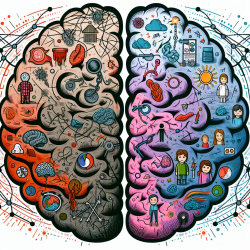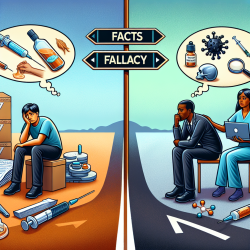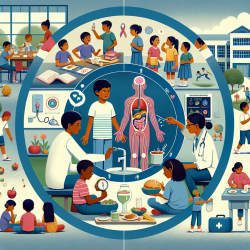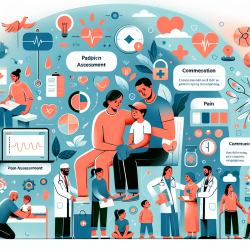Introduction
The journey from initial drug use to addiction is complex and multifaceted, often described as a downward spiral. This process is influenced by various factors, including sex differences in neural mechanisms. Understanding these differences is crucial for practitioners, especially those working with children, to improve outcomes and tailor interventions effectively.
Key Findings from the Research
The research article "Sex differences in the neural mechanisms mediating addiction: a new synthesis and hypothesis" by Becker et al. (2012) provides a comprehensive review of how sex differences influence the path to addiction. The study highlights that males are more likely to engage in risky behaviors, leading to drug experimentation, while females often use drugs as a form of self-medication for stress or depression. This difference in initiation leads to a faster transition to addiction in females due to pre-existing neurological changes.
Neural Mechanisms and Sex Differences
The study emphasizes the role of neurotransmitter systems such as dopamine, norepinephrine, and endogenous opioids in addiction. These systems are organized and function differently in males and females, contributing to the observed sex differences in addiction pathways. For instance, females show enhanced dopamine system engagement during initial drug exposure, which can lead to a more rapid escalation of drug use.
Implications for Practitioners
For practitioners, especially those in speech-language pathology working with children, understanding these sex differences is vital. It allows for the development of gender-specific interventions that address the unique needs of males and females. Practitioners can leverage this knowledge to create supportive environments that reduce the risk of addiction and promote healthy coping strategies.
Encouraging Further Research
While the study provides valuable insights, it also highlights the need for further research to explore the underlying neural mechanisms and their implications for treatment. Practitioners are encouraged to stay informed about the latest research developments and consider participating in studies that aim to unravel these complex interactions.
Conclusion
Understanding the sex differences in addiction pathways is a critical step towards improving outcomes for children and adolescents. By tailoring interventions to address these differences, practitioners can make data-driven decisions that enhance the effectiveness of their therapeutic approaches. This research serves as a foundation for developing more personalized and effective treatment strategies.
To read the original research paper, please follow this link: Sex differences in the neural mechanisms mediating addiction: a new synthesis and hypothesis.










